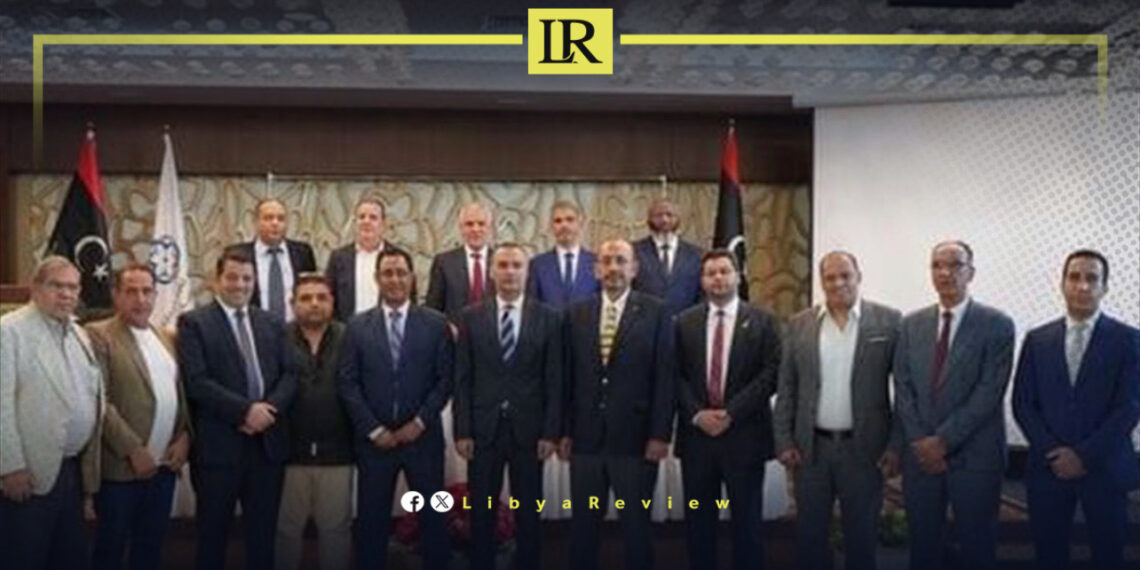A high-level Egyptian delegation recently disclosed the outcomes of its consultations with Libyan officials last week, focusing on trade cooperation opportunities in Misrata, Tripoli, and Benghazi.
The delegation, comprising members of the Alexandria Businessmen’s Association and representatives from the Egyptian Chamber of Commerce, held several bilateral meetings with the General Union of Chambers of Commerce, Industry, and Agriculture in Libya.
During these discussions, the Egyptian Businessmen exchanged views on investment opportunities between Libya and Egypt. This meeting included Director-General of the Libyan-Egyptian Chamber of Commerce, alongside chamber officials, Egypt’s Ambassador to Libya Tamer Hefny, and Mohamed Rafie, Director-General of the Egyptian-Libyan Economic Chamber.
The Egyptian trade delegation discussed a range of joint initiatives to open new investment and trade horizons. They explored ways to facilitate cooperation in various commercial sectors.
In Benghazi, the delegation visited the Investment Authority, where the Chairman outlined the investment incentives in Libya. He provided details on the investment law and offered incentives for investors, whether through direct investments or joint ventures with Libyan companies.
The delegation also conducted field visits to several private Libyan holding companies across various sectors. A preliminary agreement was reached to encourage and facilitate cooperation for the development of both nations.
Notably, Mohamed Rafie, Director-General of the Libyan-Egyptian Chamber of Commerce, announced plans to host the Fourth Libyan-Egyptian Business Forum in Egypt by the end of this year.
In collaboration with an Egyptian Chamber of Commerce in Cairo and Alexandria, the forum aims to facilitate discussions on investment and trade opportunities between Libyan and Egyptian counterparts.
Expected participation ranges between 120-130 investors and Libyan companies, seeking to explore investment prospects and trade ties with Egyptian counterparts.
Rafie noted an increase in Libyan company participation, growing from 60 in the first forum to 80 in the second and 110 in the third.
He highlighted Libya’s current stability and the commencement of reconstruction projects, where Egyptian companies are expected to play a significant role.
Rafie also revealed plans for a joint free trade zone between Egypt and Libya in the Jufrah region, aiming to boost Egyptian exports to the African market.
He emphasizsed the potential sectors to benefit from the proposed zone, including food industries, construction materials, and more.
Regarding trade relations, Rafie cited significant improvements in trade indicators, especially concerning Egyptian exports of agricultural products, food items, and construction materials, expecting growth rates to exceed 40-50% this year.
Notably, the Vice-President of the Egyptian Workers’ Union, Magdy El-Badawy, revealed details of Libya’s plan to import two million workers from Egypt in 2024.
He further emphasised that coordination had been established between Egyptian and Libyan officials, and an electronic linkage between the two countries had been established to facilitate the recruitment of Egyptian workers. The recruitment process would be conducted through government rather than individuals, and Egyptian companies would play a role in organizing and sending the workforce to Libya.


